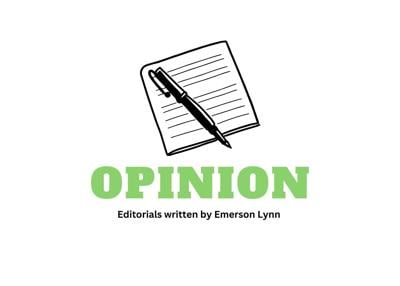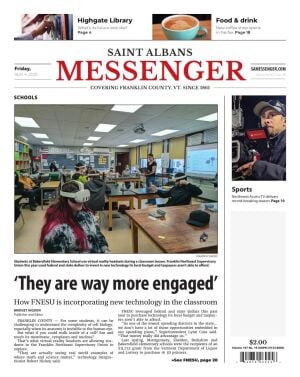Consumer confidence has fallen to a 12-year low as Americans continue to be besieged with daily reports about how their states and communities face the loss of their federal funding. Vermont is no exception; roughly 40 percent of what we spend each year comes from the federal government. That is a shade over $4 billion.
Vermonters have already been warned by the feds that about $375 million of that total has already been cut, or placed on hold. Sen. Peter Welch, D-Vermont, has warned that if the budget reconciliation vote passes as written by the House the $375 million would be a small fraction of what Vermont may eventually lose. Mr. Welch makes the point that there is no way to pay for the president’s $5 trillion tax cut without a massive cut in expenses, something that can’t be done without cutting Medicaid’s $1,029.8 billion budget, which is almost a quarter of the nation’s healthcare expenditures.
Medicaid is the federal program that covers the health care needs of those who cannot afford health care or don’t have access to services. In Vermont, that covers 26 percent of our seniors, 39 percent of our children, and 64 percent of those Vermonters living in nursing homes. Medicaid funds our Federally Qualified Health Centers [FQHCs], which are central to the state’s rural areas. We have 11 of them statewide. [NOTCH serves the people of Franklin County.]
Our FQHCs serve almost 200,000 Vermonters or a third of our population.
Today the 11 centers are losing a combined $8.5 million in their operations. Their existence is referred to as “fragile” or “tenuous.” That’s before any cuts in their Medicaid funding.
That’s terrifying.
If the FQHCs lose a significant amount of their Medicaid funding then the obvious happens: They cut services or close their doors.
Then what?
Those patients who went to the FQHCs, all 200,000 of them, would go to local hospitals, most often the emergency rooms. Many would just defer care. Both choices would place additional cost pressures on hospitals. That's a problem. In Vermont the majority of our hospitals are running deficits. The weakest of our hospitals could be forced to close their doors, or vastly reduce their services, something we were warned about last fall in the Oliver-Wyman report commissioned by the Green Mountain Care Board.
Adding to the healthcare drama is the expectation that healthcare premiums could rise at least another 15 percent this year. BlueCross Blue Shield, Vermont's largest insurer, lost over $60 million in 2024 and has averaged 17 percent increases in their premiums since 2020.
That’s not sustainable. Our healthcare premiums are double the national average. People will leave Vermont. Businesses may close or pare back their health care benefits.
Our inclination, as individuals, is to circumscribe the crisis as it affects us personally. And we look no further. Our legislators look at the healthcare crisis as something that may affect their constituencies but nothing beyond that. What we’re missing is the bigger picture, being told that, as a state, our healthcare system is like a runaway train speeding our way and about to go off the tracks.
We were warned. Yet we have no plan. No backstop is in place.
The Legislature and the governor’s office are focused on education. The issue takes up all the air in the room. Gov. Phil Scott has warned he will keep legislators in session until a suitable plan to reduce the cost of education is in place. The governor is correct to insist that figuring out better ways to pay for our schools and to make the governance system more efficient is important. Crucial even.
But when the gravity of the state’s healthcare crisis is understood [which also includes a big part of the challenge facing school districts and their budgets] it should be apparent that finding a fix for our healthcare system looms above all other challenges facing Vermont. That includes education.
This isn’t a train wreck that can be prevented with a million bucks here and there. Or a new blue ribbon study. It’s a potential train wreck that demands a systemic review and, very probably, according to some of our healthcare professionals, between $100 million to $200 million system-wide, to keep the train on the tracks.
That responsibility falls on many shoulders but for the moment it needs the attention of our congressional delegation. Vermont is on the edge of a true crisis. We need to know they understand and that the necessary effort is being made to draw the appropriate attention to all Vermonters. And to their colleagues in Congress.
This isn’t tomorrow's problem. It’s today's. We need to know how it's being addressed.
By Emerson Lynn





(0) comments
Welcome to the discussion.
Log In
Thank you for taking part in our commenting section. We want this platform to be a safe and inclusive community where you can freely share ideas and opinions. Comments that are racist, hateful, sexist or attack others won’t be allowed. Just keep it clean. Do these things or you could be banned:
• Don’t name-call and attack other commenters. If you’d be in hot water for saying it in public, then don’t say it here.
• Don’t spam us.
• Don’t attack our journalists.
Let’s make this a platform that is educational, enjoyable and insightful.
Email questions to bhigdon@orourkemediagroup.com.